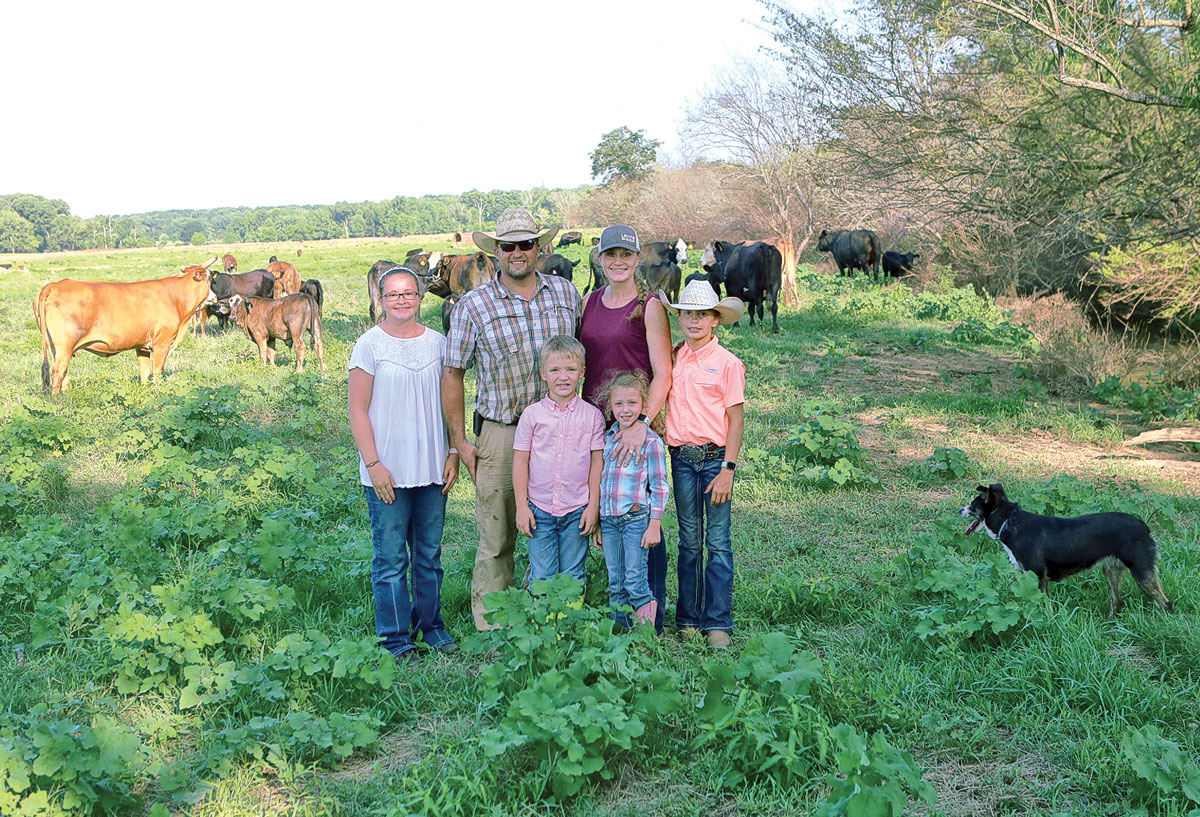
Couple begins marketing their farm-raised meat directly to customers
Broad pastures ripe with cattle are a nostalgic memory for Cody and Sarah Lewis of Greenbrier, Ark.
Both grew up on family farms, but when they married in 2004, the couple chose a path that ultimately catapulted them into a very bright future; one that no other in their families had ever followed exclusively.
“Several years ago, we watched the documentary Food, Inc. We both knew our animals were raised much healthier and humanly than what most people have access to,” Cody said. “We wanted good quality beef to be available to more people.”
Beef began to be the main focus of the couple’s farm, which happens to be the same 900 acres Cody’s grandfather, Tommy Lewis, owned. More than 290 head of cattle now roam Cody and Sarah’s land, but the two mainly work with F1 Tigerstripes and calves of Angus influence. They find these breeds to be highly compatible with the climate in Arkansas.
A 60-day breeding cycle is put into place on the Lewis farm, usually taking place between December and February or June and August.
Spring calving is quite a big event around their farm. During this time, new life is brought to the Lewis’ land in the form of 50 to 60 calves. This number is always increasing, though. The couple also never purchases any cattle, seeing as plenty are born on their farm, and they are able to retain their own replacement animals.
The livestock are predominately fed grass and hay, Cody will occasionally offer feed in the winter months from Caldwell Feed in Rose Bud, Ark., and Farmer’s Cooperative in Van Buren, Ark.
As for fertilizing their pastures, the couple are adamant about the fact they do not use commercial fertilizer.
Hayfields, however, do get fertilized with a limited amount of commercial fertilizer, but the primary fertilizer is compost.
Soil testing is conducted, roughly, every three years.
Cody and Sarah believe in a natural approach to livestock production. No growth hormones are administered to their cattle, while the use of antibiotics stays at a minimum.
“Antibiotics are used in life-threatening situations, and they are automatically culled from beef sales,” Sarah explained. “We use the website Cattlemax to keep records on each animal, so we can get detailed information on the animals you eat.”
Generally, the livestock are only vaccinated for blackleg and Infectious Bovine Rhinotracheitis (IBR) twice a year.
Cody and Sarah have four children, Mallory, Kimberly, Tyler and Timber, who are huge helping hands around the land. The children range from 4 to 14 years old, along with a newest member who will be arriving in March.
“We homeschool, so the kids are Cody’s main help as far as getting cattle up and sorting them.” Sarah stated. “It is all accomplished on horseback to minimize stress to the cattle, plus our kids love taking part in it. Our children can almost always tell you the day a cow will calve and to what cow a calf belongs. It is truly a family affair.”
Finishing the livestock takes place when the animals are around 13 months old. Two to four calves are taken to the butcher each month to keep up with customer demand, which is growing. They typically sell out when their beef is put up for sale on their Lewis Family Farm Beef website, their products are typically spoken for before they are even listed.
Cattle not utilized for the direct market beef program are sold through sale barns.
The Lewis family works demanding hours in order to produce Grade A products for their customers. They believe it is imperative people understand and experience top-quality beef because knowing where and how the beef came to be is a right that everyone should have.
“Our mission is to use all of the grass we can and to sell quality beef that people want and enjoy,” Cody said. “We rely on word-of-mouth. Of course, we have a Facebook page and a website, but since Sarah is homeschooling four kids and another one is on the way, we do not post often. We still stay sold out and have a list of people waiting.”






